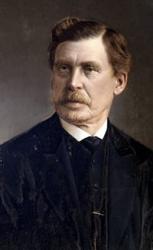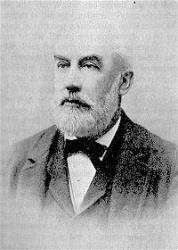Planning worship?
Check out our sister site, ZeteoSearch.org,
for 20+ additional resources related to your search.
- |
User Links
Person Results
‹ Return to hymnal








Export as CSV
Clement of Alexandria

170 - 215 Person Name: St. Clement of Alexandria, c. 170-220 Hymnal Number: 293 Author of "Master of Eager Youth" in Hymnbook for Christian Worship Clemens, Titus Flavins (Clemens Alexandrinus), St. Clement of Alexandria, was born possibly at Athens (although on this point there is no certain information) about A.D. 170. His full name, Titus Flavins Clemens, is given by Eusebius (H. E., vi. 13) and Photius (Cod. Ill), but of his parentage there is no record. Studious, and anxious to satisfy his mind on the highest subjects, he is said to have been a Stoic and Eclectic, and a seeker after truth amongst Greek, Assyrian, Egyptian, and Jewish teachers. He himself enumerates six teachers of eminence under whom he studied the "true tradition of the blessed doctrine of the holy apostles." At Alexandria he came under the teaching of Pantsenus, and embraced Christianity, Pantsenus being at the time the master of the Catechetical School in that city. On the retirement of Pantsenus from the school for missionary work, Clement became its head, cir. 190, and retained the position to 203. His pupils were numerous, and some of them of note, including Origen, and Alexander, afterwards Bishop of Jerusalem. Driven from Alexandria by the persecution under Severus (202-203), he wandered forth, it is not known whither. The last notice wo have of him in history is in a letter of congratulation by his old pupil, Alexander, then Bp. of Cappadocia, to the Church of Antioch, on the appointment of Asclepiades to the bishopric of that city. This letter, dated 211, seems to have been conveyed to Antioch by Clement. Beyond this nothing is known, either concern¬ing his subsequent life or death, although the latter is sometimes dated A.D. 220.
The works of Clement are ten in all. Of these, the only work with which we have to do is The Tutor, in three books. The first book describes the Tutor, who is the Word Himself, the children whom He trains (Christian men and women), and his method of instruction. The second book contains general instructions as to daily life in eating, drinking, furniture, sleep, &c.; and the third, after an inquiry into the nature of true beauty, goes onto condemn extravagance in dress, &c, both in men and women. Appended to this work, in the printed editions, are two poems; the first, "A Hymn of the Saviour), and the second, an address "To the Tutor". The first, beginning is attributed to Clement in those manuscripts in which it is found; but it is supposed by some to be of an earlier date: the second is generally regarded as by a later hand .
The “Hymn of the Saviour," the earliest known Christian hymn, has been translated into English:
The earliest translation is "Shepherd of tender youth.” This is by Dr. H. M. Dexter (q. v.). It was written in 1846, first published in The Congregationalist [of which Dexter was editor], Dec. 21, 1849, and is in extensive use in the United States. In Great Britain it is also given in several collections, including the New Congregational Hymn Book, 1859; Baptist Psalms & Hymns, 1858; the R. T. Society's Collection, &c.
There are also translations not in common use, viz.: (1) "Bridle of colts untamed," by Dr. W. L. Alexander, in the Ante-Nicene Christian Library, vol. iv. p. 343; (2) "Bridle of colts untaught," by Dr. H. Bonar, in The Sunday at Home, 1878, p. 11. (3) Another translation is by the Rev. A. W. Chatfield, in his Songs and Hymns of the Earliest Greek Christian Poets, 1876. Mr. Chatfield, following the Anth. Graeca Car. Christ., 1871, p. 37, begins with the eleventh line: "O Thou, the King of Saints, all-conquering Word." His translation extends to 40 lines.
--Excerpts from John Julian, Dictionary of Hymnology (1907)
Clement of Alexandria
Meyer Lyon

1751 - 1797 Person Name: Meyer Lyon, 1751-1797 Hymnal Number: 81 Transcribed by of "LEONI" in Hymnbook for Christian Worship Died: 1797, Kingston, Jamaica.
Pseudonym: Leoni.
Lyon was a chorister at the Great Synagogue, Duke’s Place, London, and a public singer either at Drury Lane or Covent Garden. Subsequently he became the first qualified chazan of the English and German Synagogue in Jamaica.
Sources:
Julian, p. 1151
McCutchan, pp. 27-28
Music: LEONI
http://www.hymntime.com/tch/bio/l/y/o/lyon_m.htm
================
http://en.wikipedia.org/wiki/Myer_Lyon
Meyer Lyon
John Page Hopps

1834 - 1911 Person Name: John P. Hopps, 1834-1912 Hymnal Number: 36 Author of "Father, Lead Me Day by Day" in Hymnbook for Christian Worship Hopps, John Page, was born in London, Nov. 6, 1834, and educated at the G. Baptist College, Leicester. Commencing public work in 1856, after a brief ministry at Hugglescote and Ibstock, in Leicestershire, he became colleague with George Dawson at the Church of the Saviour, Birmingham. From 1860 to 1876 he ministered to Unitarian congregations at Sheffield, Dukinfield, and Glasgow. Since 1876 he has preached in Leicester. Mr. Hopps has published many books and pamphlets, chiefly volumes of Sermons and Lectures. Most of his smaller works are controversial. In 1863 he commenced a monthly periodical called The Truthseeker. He has compiled the following hymnbooks for Congregational, Mission, or School purposes:—
(1) Hymns for Public Worship and the Home, 1858; (2) Hymns of Faith and Progress, c. 1865; (3) Hymns for Public Worship, 1873; (4) One hundred Hymns for Sunday Schools, 1873; (5) Hymns, Chants and Anthems for Public Worship, 1877; (6) The Children's Hymn Book, 1879; (7) The Young People's Book of Hymns, 1881; (8) and six different editions of Hymns for Special Services (for Sunday afternoon and evening gatherings in the Temperance Hall and Floral Hall, Leicester).
Mr. Hopps has himself written various hymns, some of considerable merit. Several have appeared in Congregational, Baptist, Unitarian and other collections. Among the best known are the following:—
1. Cold and cheerless, dark and drear. Winter.
2. Father, lead me day by day. Child's Prayer for Divine Guidance.
3. Father, let Thy kingdom come. God's Kingdom desired.
4. God bless the little children. Prayer for Children.
5. We praise Thee oft for hours of bliss. The blessings of Sorrow.
These hymns are from his Hymns, Chants, and Anthems, &c. 1877, and the Hymns for Special Services. The most popular is No. 2.
[Rev. W. R .Stevenson, M.A.]
--John Julian, Dictionary of Hymnology (1907)
John Page Hopps
Alfred Tennyson, Baron Tennyson

1809 - 1892 Person Name: Alfred Tennyson, 1809-1892 Hymnal Number: 15 Author of "Strong Son of God" in Hymnbook for Christian Worship Tennyson, Alfred, Lord, son of the Rev. G. C. Tennyson, Rector of Somersby, Lincolnshire, was born at Somersby, Aug. 6, 1809; educated at Trinity College, Cambridge; appointed Poet Laureate in 1850, and raised to the Peerage in 1884. Although Lord Tennyson has not written any hymns, extracts from his poems are sometimes used as such, as "Strong Son of God, immortal Love" (Faith in the Son of God), from the Introduction to his In Memoriam, 1850; the well-known "Too late, too late, ye cannot enter now," and others. The former is sometimes given as "Spirit of immortal Love," and again as "Eternal God, immortal Love."
--John Julian, Dictionary of Hymnology, Appendix, Part II (1907)
Alfred Tennyson, Baron Tennyson
Justin Heinrich Knecht

1752 - 1817 Person Name: Justin H. Knecht, 1752-1817 Hymnal Number: 221 Composer of "ST. HILDA" in Hymnbook for Christian Worship Justin Heinrich Knecht Germany 1752-1817. Born at Biberach Baden-Wurttemberg, Germany, he attended a Lutheran college in Esslingen am Neckar from 1768-1771. Having learned the organ, keyboard, violin and oratory, he became a Lutheran preceptor (professor of literature) and music director in Biberach. It was a free imperial city until 1803 and had a rich cultural life. He became organist of St. Martin’s Church in 1792, used by both Lutherans and Catholics, and was there for many years. He led an energetic, busy musical life, composing for both the theatre and church, organizing subscription concerts, teaching music theory, acoustics, aesthetics, composition, and instruments at the Gymnasium, affiliated to the Musikschule in 1806. He went to Stuttgart in 1806 in hopes of a post there as Kapellmeister, serving two years as Konzertmeister, but he was appointed Direktor Beim Orchester by the King of Wurttemberg in 1807. However, he returned to his former life in 1808 and remained there the rest of his life. He died at Biberach. He wrote 10 vocals, 11 opera and stage works, one symphony, 3 chamber music instrumentals, 7 organ works, 4 piano works, and 6 music theories. He was an author composer, editor, contributor, musician, compiler, and lyricist.
John Perry
Justin Heinrich Knecht
Samuel A. Ward

1848 - 1903 Person Name: Samuel A. Ward, 1847-1903 Hymnal Number: 374 Composer of "MATERNA" in Hymnbook for Christian Worship
Samuel A. Ward
Arthur Henry Messiter

1834 - 1916 Person Name: Arthur H. Messiter, 1834-1916 Hymnal Number: 97 Composer of "MARION" in Hymnbook for Christian Worship Arthur H. Messiter (b. Frome, Somersetshire, England, 1834; d. New York, NY, 1916) Educated by private tutors in England, he, immigrated to the United States in 1863 and had an active musical career in Philadelphia, which included an organist position at St. James the Less. At Trinity Church in New York City, he modeled with distinction the British cathedral tradition of music. Messiter was an editor of the Episcopal Hymnal (1893), compiled the Psalter (1889) and Choir Office Book (1891), and wrote a musical history of Trinity Episcopal Church, New York (1906).
Bert Polman
Arthur Henry Messiter
F. F. Flemming

1778 - 1813 Person Name: Friedrich F. Flemming, 1778-1813 Hymnal Number: 229 Composer of "FLEMMING" in Hymnbook for Christian Worship Friedrich Ferdinand Flemming Germany 1778-1813. Born in Neuhausen, Erzgebirge, Germany, he studied medicine at Wittenberg, 1796-1800, Jena, Vienna, and Trieste. He practiced as a physician in Berlin until his death, but, musically, is remembered for his setting of Horace's ode beginning “Integer Vitae”, from which the tune “Flemming” is adapted. He was active in musical circles and composed many songs for a male vocal ensemble, “Liedertafel”. He died in Berlin.
John Perry
F. F. Flemming
R. B. Y. Scott
1899 - 1987 Person Name: R. B. Y. Scott, 1899- Hymnal Number: 266 Author of "O Day of God, Draw Nigh" in Hymnbook for Christian Worship Scott, Robert Balgarnie Young. (Toronto, Ontario, July 18, 1899--November 1, 1987). United Church. University of Toronto, B.A., 1922; M.A., 1924; Ph.D., 1928. Pastorate at Long Branch, Ont., 1926-1928; professor of Old Testament at Union College (Vancouver), 1928-1931; United Theological College (Montreal), 1931-1955; Princeton University, 1955-1968; also dean of divinity at McGill University (Montreal), 1945-1955. Published many translations of, and commentaries on, Old Testament material, as well as on the Dead Sea Scrolls. Most of his hymns date from his years in Montreal.
--Hugh D. McKellar, DNAH Archives
R. B. Y. Scott
Martin Herbst
1654 - 1681 Person Name: Martin Herbst, 1654-1681 Hymnal Number: 52 Composer (attributed to) of "HEINLEIN" in Hymnbook for Christian Worship Born: January 15, 1654, Rotenbach, Germany.
Died: 1681, Eisleben, Germany, of plague.
Martin Herbst (1654-1681) was a German Lutheran clergyman. Herbst studied at St. Lorenz School in Nürnberg, and read theology and philosophy at Altdorf and Jena. He was made Rector of the Gymnasium in Eisleben in 1680, and later became pastor of St. Andreas church in the same town.
--www.hymnswithoutwords.com/hymns
Martin Herbst


 My Starred Hymns
My Starred Hymns


